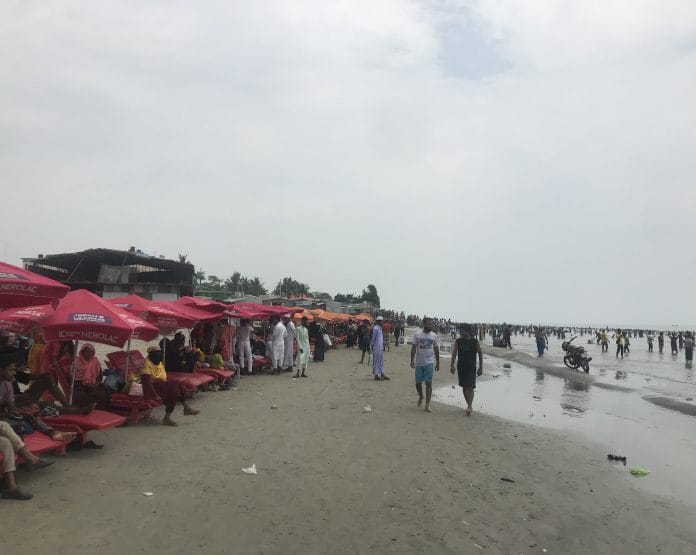On the occasion of World Environment Day, Change Initiative has sounded the alarm on a growing environmental crisis: an estimated 15,345 tonnes of single-use plastic are flowing into Bangladesh daily through 18 transboundary rivers, posing a grave threat to the country’s coasts, ecosystems, fisheries, and public health.
The findings come from the organisation’s new report, “Cross-Border Plastic Pollution and Its Impact on the Bay of Bengal” released today. According to the report, the daily inflow of plastic waste places Bangladesh among the countries most affected by transboundary riverine plastic pollution globally. Much of this waste accumulates in the Sundarbans and the Bay of Bengal, where it suffocates marine life, disrupts fishing industries, and jeopardizes coastal livelihoods.
“The Sundarbans — the world’s largest mangrove forest — is becoming a cesspit of waste,” said M Zakir Hossain Khan, Chief Executive and Managing Director of Change Initiative. “Marine plastic pollution is destroying critical fish nurseries and costing Bangladesh and neighboring countries an estimated $11.4 billion annually in lost ecosystem services.”
Change Initiative also highlights that 86 percent of global river-borne plastic pollution originates in Asia, with the Ganges River ranked as the second-highest plastic-emitting river in the world, discharging up to 115,000 tonnes of plastic annually into the ocean.
“Our coast is becoming a plastic hotspot,” Khan warned. “We must enforce the ‘polluter pays’ principle—not against states, but against the corporations driving plastic production and consumption. A global ban on single-use plastics is overdue. Sustainable management will require both positive and negative incentives to reduce plastic production.”
He further urged alignment with a Natural Rights-Led Governance (NRLG) framework, emphasising the Right to a Clean and Healthy Ocean as fundamental to life and livelihoods. “We need legal enforcement of plastic bans in ecologically critical areas (ECAs) and fishing zones, impact assessments for plastic-heavy industries, and recognition of the rights of artisanal fishers and coastal communities to a plastic-free marine environment,” he added.
Key Recommendations from the Report:
- Legal personhood for vital marine ecosystems such as the Sundarbans and estuaries, enabling communities to take legal action against polluters.
- Mandatory life cycle tracking of plastics used in coastal and maritime industries under Extended Producer Responsibility (EPR).
- Empowerment of coastal communities, including 50% women and youth, to co-manage marine litter hotspots using real-time monitoring tools like mobile apps and SMS reporting systems.
- Strict bans on hazardous plastics in ECAs and fishing zones.
Change Initiative is calling on Bangladesh to champion regional agreements on cross-border plastic waste, especially within BIMSTEC, and to lead efforts during negotiations for the Global Plastics Treaty.
“Without urgent national and regional action,” the report warns, “Bangladesh’s coasts will continue to drown in a toxic pool of waste.”

